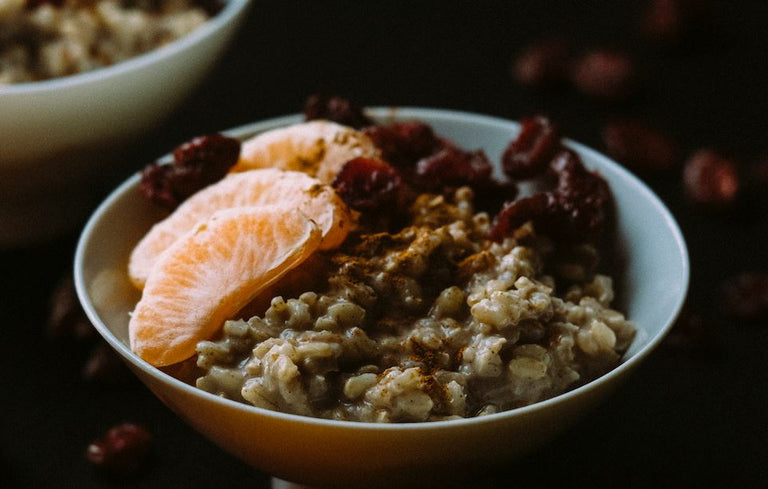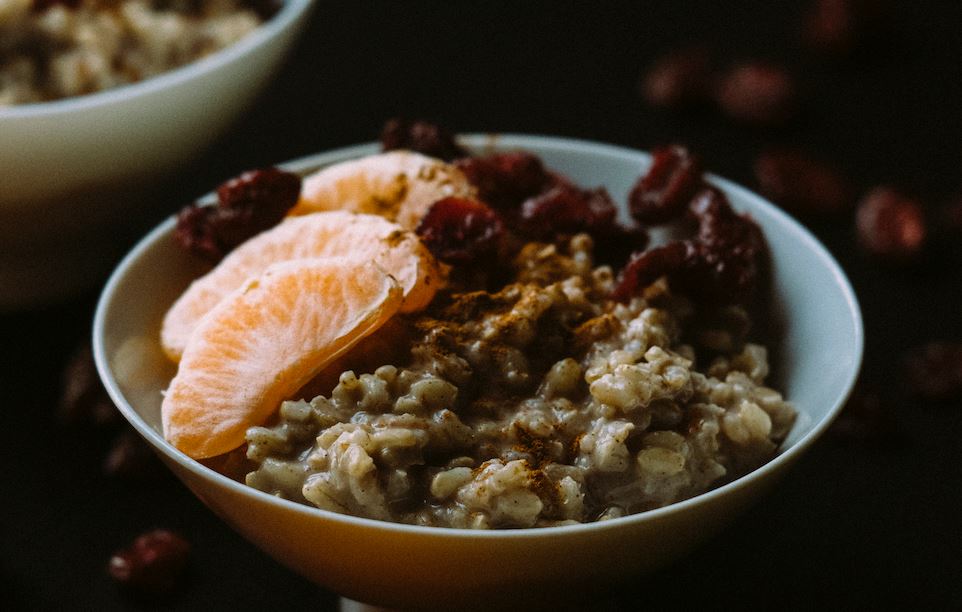Nutrition can seem very complicated, but it doesn’t have to be! Understanding basic nutrition fundamentals is an important starting point for anyone interested in taking charge of their health and impacting their performance as an athlete. In this presentation, we’ll cover the basics of nutrition for health and sport, discuss “trending” nutrition strategies, their implications and considerations for training and performance outcomes, as well as review practical applications for implementation in everyday life.
In This Clinic
- Introduction to Nutrition Basics
- Simple carbs vs. complex carbs
- Sample meal plan
- Fueling Recommendations for Performance
- Eating Patterns and performance
- Weight Loss Strategies
- Key Takeaways
Introduction: Nutrition Basics
Types of Nutrients
-
Macronutrients
- Needed by the body in large quantities.
- Protein, Fat & Carbs
- How we Classify Calories in Food.
-
Micronutrients
- Needed by the body in relatively smaller quantities.
- Vitamins, Minerals, Antioxidants & Phytonutrients.
- The chemicals found in trace amounts of food.
Carbohydrates
- Drives high intensity exercise.
- Fuels our muscles.
- Brain requires 130g of glucose per day.
- Limited body stores: ~500g of carbohydrates
- (needs replenishment pre/post workout)
- Recommendations range from 45-65% of total daily calories.
SIMPLE CARBOHYDRATES VS. COMPLEX CARBOHYDRATES
SIMPLE CARBOHYDRATES
- Rapid digestion
- Quick boost of energy
- Great for topping off stores before exercise
- Examples:
- Fruits (bananas)
- Rasins
- Honey
- Milk
- Yogurt
- Others
- Examples:
Complex CARBOHYDRATES
- Longer Lastings Energy
- Nutrient-dense
- Have fiber for slow release of energy
- Majority of daily carbohydrate intake should be complex.
- Examples:
- Starchy Vegtables
- Whole grains (brown rice, oats)
- Quinoa
- High fiber fruit
- Beans
- Examples:
Proteins
- Builds and repairs muscle tissue
- Key for bone health
- Improves fullness and satisfaction of snacks and meals
- Provides structure and support
- 1.2-2.0 g/kg BW (high quality)
- 0.3 g/kg BW every 3-5 hours
Timing and distribution of protein ingestion during prolonged recovery from resistance exercise alters myofibrillar protein synthesis.
Sample Meal Plan
Breakfast
Oatmeal w/ nuts, milk, seeds, berries & greek yogurt.
(20-30g protein)
Egg & veggie scramble w/ turkey, beans, cheese and english muffin.
Snack
Tuna pouch w/ edamame
(~20g protein)
Cottage cheese w/ honey and fruit.
Lunch
Rice/Quinoa bowl w/ chicken, beans, kale and vegetables.
(20-30g protein)
Deli turkey or chicken on whole wheat wrap w/ veggies, pretzel + apple.
Pre- workout
Whole grain bread w/ peanut butter and fruit + 8 oz milk
(~20g protein)
Oatmeal, energy bites w/ pb, banana and chocolate chips + honey.
Post- workout
Smoothie with greek yogurt, fruit, spinach and dates.
(20-30g protein)
Banana, milk + protein powder.
Dinner
Turkey meatballs w/ whole wheat pasta, tomato sauce and salad.
(20-30g protein)
Lean beef burgers w/ cheddar cheese, avocado on whole wheat bun with sweet potato fries and green salad.
Fats
- Energy dense nutrient and important part of diet for athletes
- Fuels long, lower intensity workouts
- Important for hormone production
- Helps provide cushion for organs
- Recommendations range from 20-35% of total daily calories
- (<20% may limit essential nutrient intake)
Fueling Recommendations for Sports & Performance
Athlete Plates
A tool to better adjust eating to match physical demands. Training volume and intensity vary from day to day and week to week.
- Eating should be cycled to match demands
PRE-EXERCISE FUELING
Three to four hours before workout, focus on a balanced meal that's right for you with higher carbohydrates.
- Carbohydrate-focused
- Choose low fat & low fiber
- Find foods you can tolerate
- Include fluids
Fueling During Exercise
Hydrate. Drink water as needed
- If high intensity workout has a duration longer than 45 minutes, consider adding simple carbohydrates
Post-Exercise Fueling
Focus on the "Three R's"
Eating Patterns and the performance benefits
- Help individuals lean out or loose body fat which can aid in performance
- Improve diet quality - eliminate junk food, fast food and less nutritious foods.
- Renew focus, energy and confidence to meet a goal
- Strict rules and guidelines to take out the "thinking" in meal planning and gives structure.
Eating Patterns and the performance Dilemma
- Elimination of entire food groups takes out essential nutrients required for optimal performance.
- (No Carbohydrates can lead to a drop in energy, performance and recovery.
- (No Animal Proteins can make it challenging to achieve protein needs for strength and recovery.
- Restrictive eating patterns pose challenges when eating with family and loved ones.
- Long-term adherence is questionable due to time constraints, food restrictions, etc.
Common issues with an Increase in Dietary Restrictions
- May require more time, effort and meal planning
- May increase risk of nutrient deficiencies
- Can impact performance
- Is likely not sustainable long term
Weight Management & Weight loss Considerations
- Timing
- Performance
- Sustainability
- Health / Nutrients
- Current Diet "Cleanup" (Primary Macronutrients. I.e. Higher Quality foods)
Weight Loss Strategies
Avoid Low Calorie Diets
Restricting food intake for quick weight loss results may be tempting but it can result in the following:
- lowered lean tissue and muscle strength
- lowered glycogen stores, leading to less energy for performance
- Fatigue
Increase protein intake (within reason)
- With caloric restriction, increase protein helps preserve lean body mass (2g/kg bw)
- Increase in protein equals and increase in satiety
Build meals around nutrient-dense foods
- Fruits & Vegetables, whole grains, beans & legumes, lean meats, poultry & seafood, nuts & seeds, eggs and low fat dairy
Increase foods high in water and fiber
- Greater volumes of food equals greater satiety with fewer calories
- Fiber can increase satiety, "waste disposal" feeds healthy gut bacteria.
- (fruits & vegetables, beans & legumes, and whole grains)



